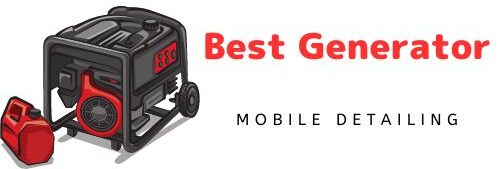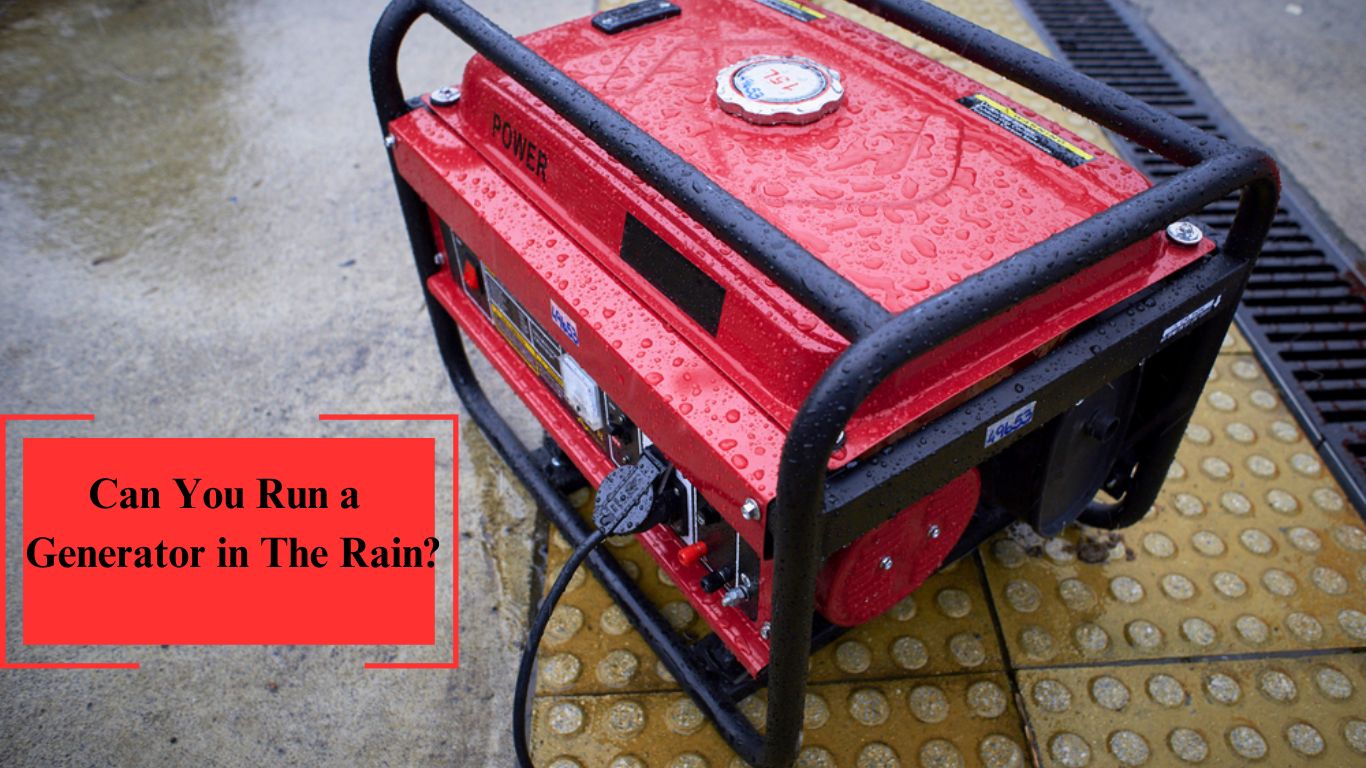If you experience an extended power outage, a generator will be an essential lifeline, powering your home and running your day-to-day. However, safety issues always arise when bad weather occurs, especially when rain occurs. Can you run a generator in the rain?
This article will delve into the intricacies of operating a generator in wet conditions, highlighting the important precautions you must take. Discover the potential risks that rain poses to your generator, what can happen if it gets wet, and the best practices for operating and protecting it in adverse weather.
Understand The Risks When You Run a Generator in The Rain
Running a generator in the rain entails many risks that demand careful consideration. While portable generators typically boast weatherproof enclosures designed to shield their engines and electrical systems from environmental hazards, operating one during inclement weather warrants thorough understanding and preparedness. The inherent dangers persist despite manufacturers’ efforts to fortify these units against the elements, necessitating proactive measures to mitigate potential hazards.
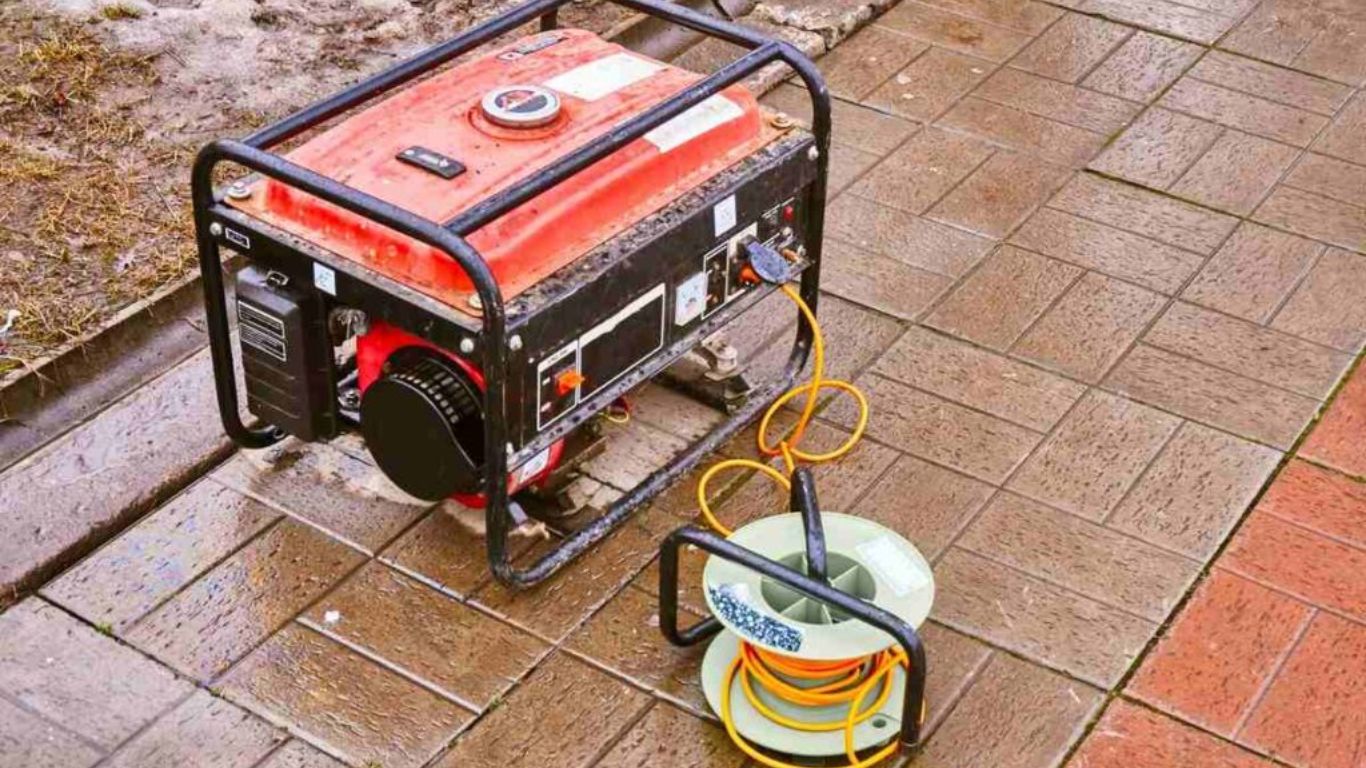
Moreover, exposure to moisture significantly elevates the risk of electric shock, posing a grave danger to anyone nearby. Rainwater infiltration into the generator’s electrical components compromises their insulation, paving the way for electrical faults and short circuits. Even a small breach in the generator’s weatherproof housing can invite moisture ingress, triggering catastrophic consequences.
Should Generators For Mobile Detailing be Used in The Rain?
Normally, you should protect your generator in the rain. Don’t let moisture cause costly damage or injury risks. Always keep your generator safe, dry, and reliable.
As mentioned above, using a generator to move details in the rain brings some safety and operational concerns even for mobile detailing. First, it’s important to note that mixing water and electrical equipment is dangerous, potentially leading to electric shock or short circuits. Water can also damage the generator, reducing its performance or causing it to fail. Additionally, wet conditions can affect generator performance, making it difficult to maintain stable power output. Operating the generator in wet conditions may void the warranty as manufacturers generally recommend using them in dry, well-ventilated areas.
To ensure safety and efficiency, the generator should be covered with a roof or waterproof tent and placed on a dry, elevated surface to avoid water stagnation. Properly grounding the
generator is essential to prevent electrical hazards. It’s best to check the weather forecast and schedule detailed work on dry days. Consider using battery-powered equipment to eliminate the need for a generator or reschedule work to indoor locations when it rains. Following these precautions, using a portable generator in rainy weather can be safe and effective.
Precautions For Running Generators Safely
To effectively avoid these dangers, remember the following to ensure safety.
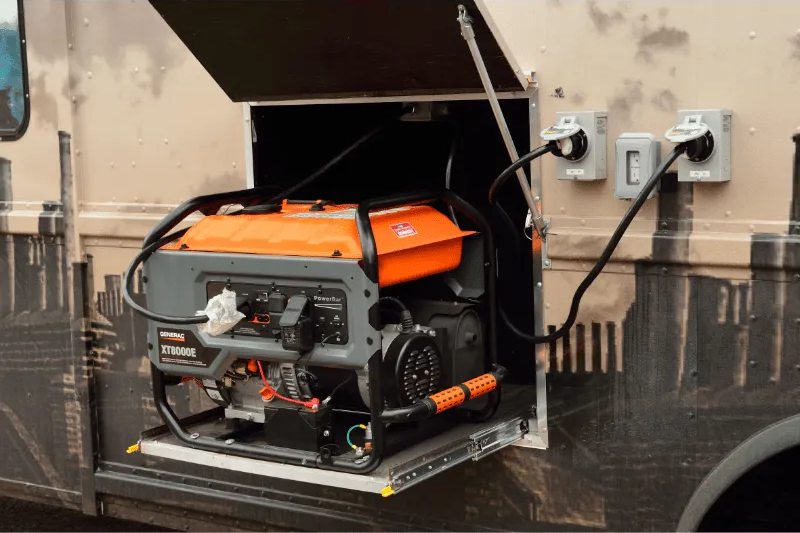
Choose a flat, dry surface: Prioritize placing the generator on a flat surface. Place it under an awning or shelter to protect it from rain if feasible.
Maintain a safe distance: Place the generator at least 20 feet away from any structure. This helps prevent carbon monoxide buildup in the home, a potentially fatal hazard for family members.
Refer to Manufacturer’s Instructions: Consult the owner’s manual to determine whether the generator is suitable for operation in wet weather. Some models may not be designed for such conditions and may be damaged.
A generator should not be connected to the power source in your home: Only devices and cords rated for outdoor use should be connected. Avoid plugging a generator into a household electrical outlet, which can create deadly electrical hazards such as “back feed” currents that put anyone in contact with the outlet at risk of electrocution.
Additionally, it puts strain on the generator and can cause damage to your home’s electrical system. If you must use a generator during a power outage, consult an electrician before connecting it to your home’s wiring.
Measures to Take When You Run a Generator in The Rain
Whether light fog or heavy rain, moisture can harm your generator. A wet generator poses significant risks. Even slight damage can lead to injuries or costly repairs.
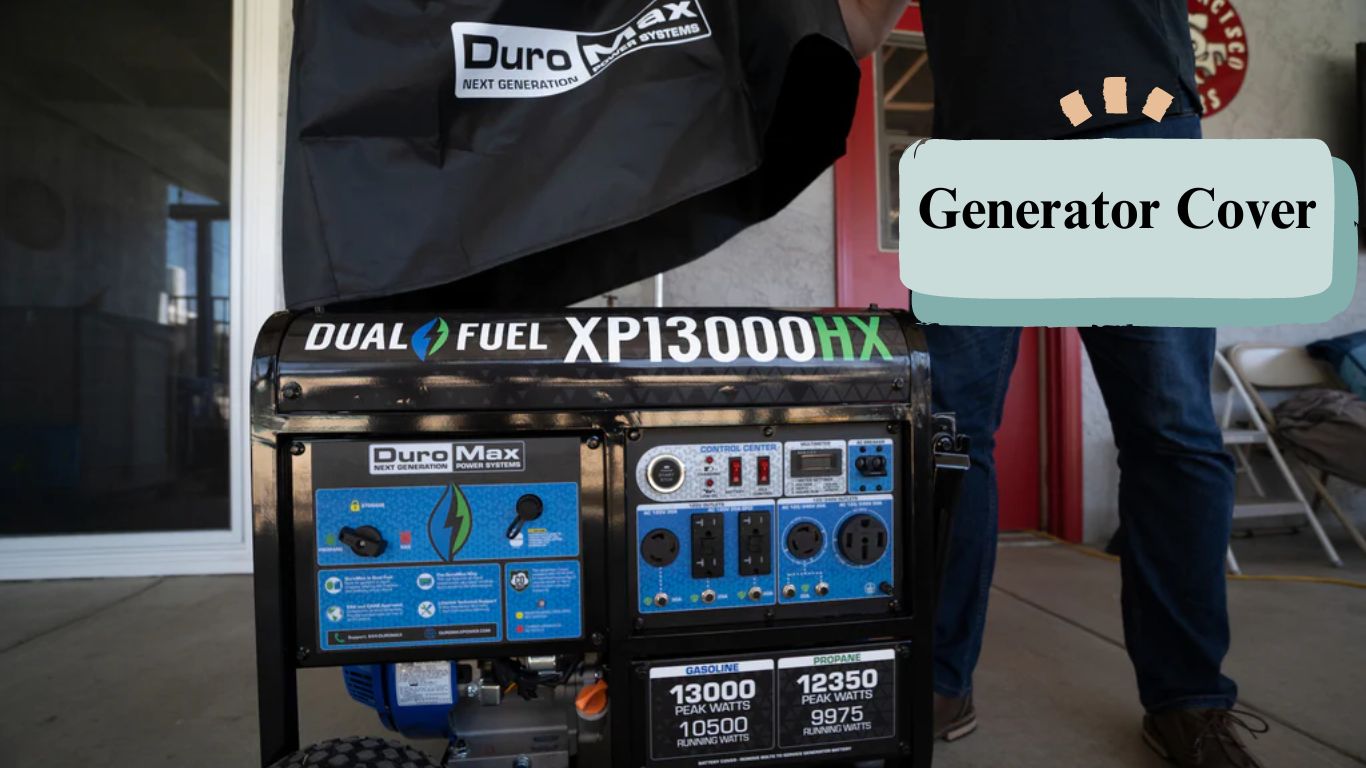
To ensure your generator stays safe in wet conditions, your top priority should be to shield it. It can protect both your family and your investment.
You can refer to some tips on running a generator in the rain.
Keep The Entire System Dry
Covering your generator is the first step, but keeping it 100% dry is insufficient. There are two other places where moisture can enter the system:
–Wet hands: If you go out in the rain, your hands may get wet. It’s important to only handle the generator with dry hands (or wear dry gloves). Otherwise, you risk being electrocuted.
– Cables: Any cables running from the generator are also a liability. Perform periodic checks to ensure the cable is not broken or frayed. When wires are exposed to the elements, the likelihood of an accident increases significantly.
Cover the generator when it rains
Ensure Adequate Ventilation
Generators burn fuel to operate and produce harmful fumes when inhaled. Remember: NEVER run the generator in an enclosed space and keep it as far away from doors and windows as possible.
Prevent your generator from overheating. When your generator gets too hot:
– It may stop working or run at a lower capacity.
– Nearby items may melt.
– The generator housing may catch fire.
Adequate ventilation is essential for your covered generator.
Keep the generator in a well-ventilated area
Buy a High-Quality Generator
Generators exist to generate electricity when needed. And as you know, water and electricity don’t mix.
With that in mind, no generator can withstand heavy rain. However, if your rain cover has a small leak, a high-quality generator will fare better than a budget brand.
We want to emphasize that keeping your generator dry is the only way to avoid any damage to the product or injury to yourself. However, with a premium generator, you can rest easy knowing the sensitive parts are better protected.
Should buy a generator with high quality
Do Not Use a Generator in The Rain If it is Not Necessary
A running generator is an important tool in an emergency. However, when it comes to hurricane season or winter storms, it’s best to use them in the aftermath rather than at the peak of bad weather. Why?
While you might be tempted to start your generator when the power goes out, it’s best to hold off until the worst winds subside. Most tornadoes last less than ten minutes, so you won’t have to wait long.
Don’t let a power outage rain on your life. Power outages are often accompanied by rain. Fortunately, if you take every precaution and keep your generator dry, covered, and well-ventilated, you shouldn’t have any problems.
When purchasing a generator, you want to be assured that it will operate reliably in any weather. With a home generator and weatherproof cover, you’ll be prepared to weather any storm comfortably and safely.
Practice Safety While Using The Generator
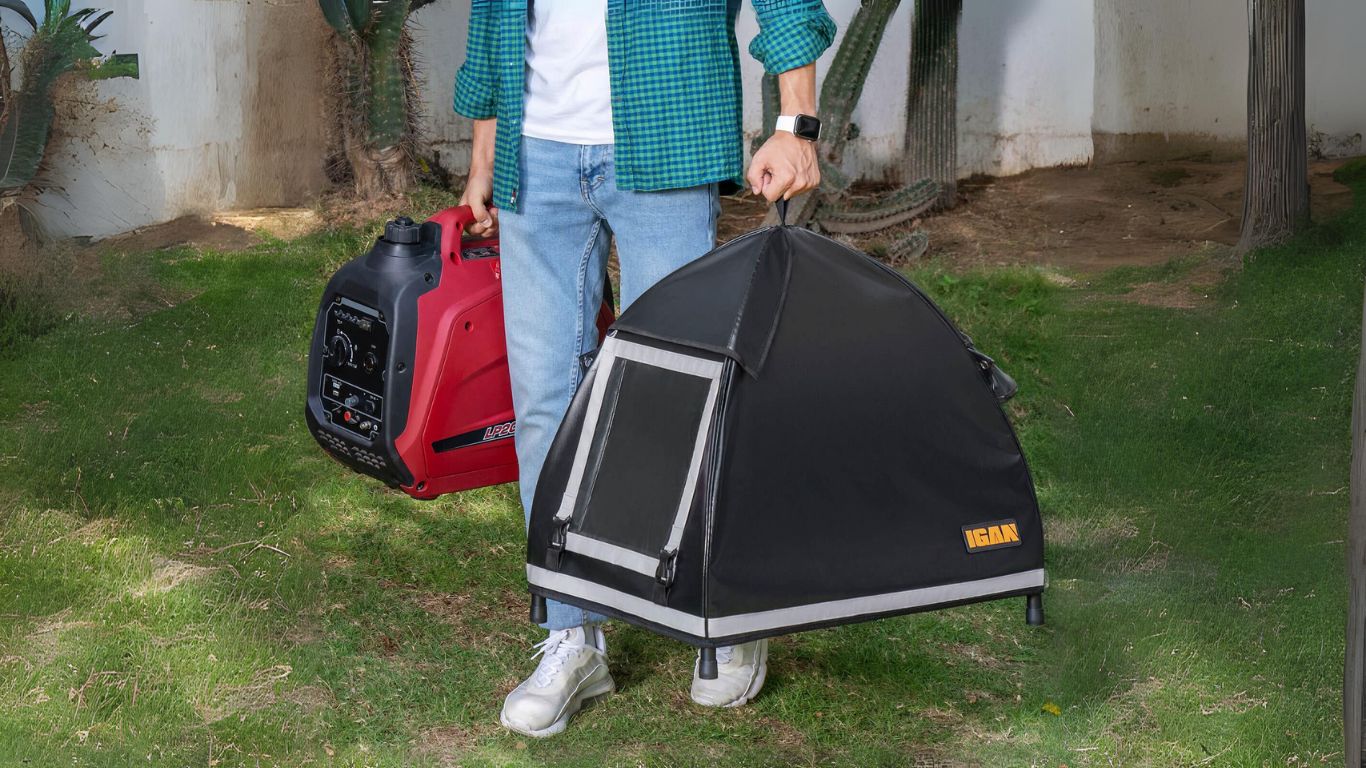
Ventilation: When using a generator indoors, it’s crucial to ensure proper ventilation to prevent carbon monoxide accumulation, which can be deadly. Carbon monoxide poisoning can occur quickly, leading to serious health issues or even death. To reduce this risk, operate the generator in a well-ventilated area, preferably outdoors, where the exhaust fumes can dissipate safely. If outdoor operation is not possible, ensure that the indoor space has ample airflow, using fans or open windows and doors to promote air circulation. Additionally, installing carbon monoxide detectors near the generator can provide an extra layer of safety by alerting you to dangerous gas levels.
Refueling Caution: Refueling a generator requires careful attention to safety to avoid fire hazards. Never refuel a generator while it is running or immediately after it has been turned off, as the hot engine parts can ignite the fuel. Allow the generator to cool down completely before adding more fuel. This cooling period reduces the risk of ignition and prevents burns. When you refuel, use a proper fuel container and ensure that the fuel is stored safely, away from open flames or sparks. After refueling, clean up any spills immediately and ensure the fuel cap is securely tightened before restarting the generator.
Conclusion
Portable generators can be a lifesaver in an emergency, but it’s important to know how to run a generator in the rain safely.
In this post, we looked at the dangers of using a portable generator in the rain and gave some tips for running a generator safely in the rain. Now you understand how to use a generator safely and what to do to protect your safety during heavy rain and strong winds. How best should you store them, whether you should cover them, and how far away from your house should you store your generator? Contact us today to find the best generator for you
Marion Woods is an accomplished generator technology expert with over 15 years of experience, currently serving as the Chief Technology Officer at GenTech Power Solutions. She holds a Master’s degree from MIT and specializes in enhancing generator efficiency and integrating renewable energy sources. Marion is a respected author and speaker in the engineering community, dedicated to pioneering sustainable power solutions.
